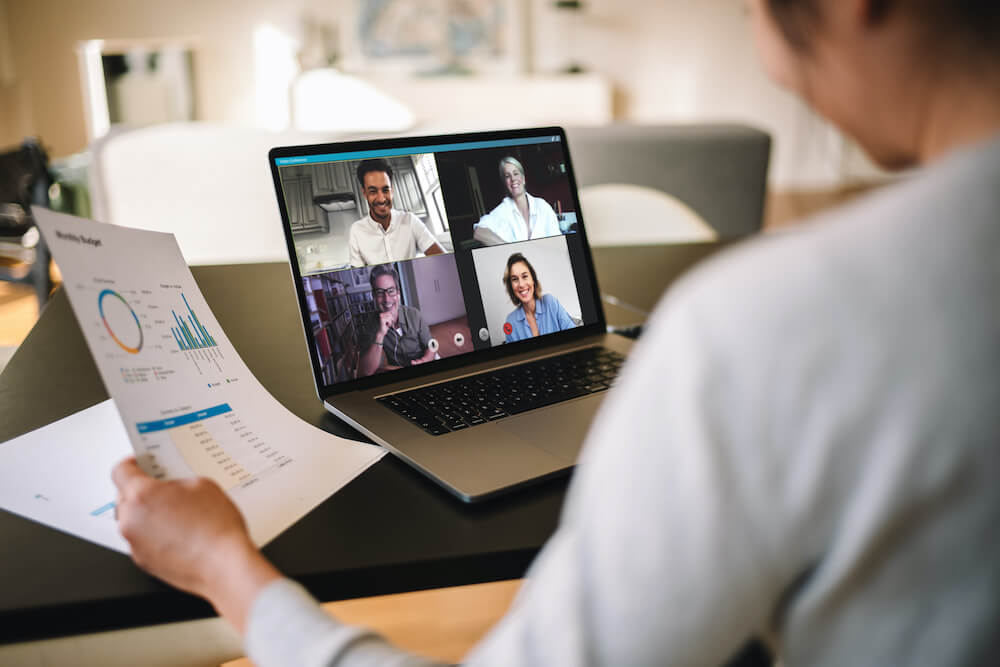Coaching Salespeople in a Hybrid Work Environment

The world has changed in countless ways since early 2020, and that means sales coaching has to adapt. How do you maintain a strong coaching regimen with salespeople who are spending some or all of their working day out of the office?
Here are six powerful best practices we share with our clients on coaching salespeople effectively in a hybrid work environment.
- Do your best to recreate the right in-person environment for the remote session. Set the stage. Make conscious choices about what will and won’t show up in the frame once the session gets started. Keep your surroundings professional-looking, optimistic, and uncluttered. Make sure your tonality, your body language, and your visible attire send the message that you are showing up for a business meeting. This is not a hangout session. This is a meeting.
- Set a solid coaching contract. Coaching sessions require a strong up-front contract where both participants develop a meaningful agenda. This agenda becomes the focus of the session. A time contract is critical for the initial session as well as all succeeding sessions. The three critical elements to understand during each coaching session are what, reason and importance. By this I mean the shared purpose of the coaching session (the what), why it is necessary to achieve the mutually agreed-upon goal (the reason), and the real-world impact the accomplishment will have to the salesperson (the importance).
- Protect the coaching session from Zoom fatigue. When you schedule this meeting, bear in mind that late-day coaching session tend not to be as effective as sessions that take place earlier in the day. Eliminate all potential distractions.
- Keep it brief. Remote coaching sessions should be between ten and twenty minutes in length – no longer! An in-person coaching session can go on for much longer. In a remote setting, attention spans are briefer and every minute counts.
- Prepare. Do the same up-front preparation for a remote coaching meeting as you would for an in-person meeting.
- Mix it up. If possible, schedule both in-person and virtual training sessions with each salesperson. If that’s not possible, schedule remote sessions more frequently – once a week, say, rather than every other week.
Implement all six of these best practices, and you will lay the groundwork for a successful coaching relationship with sales professionals who do all or part of their job out of the office.
Learn additional best practices in this on-demand webinar to effectively scale your sales coaching process.








